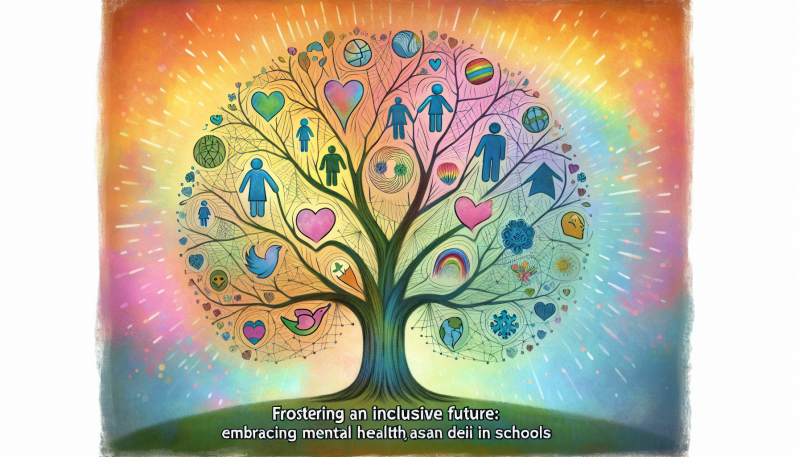In the nurturing halls of education, where young minds are shaped and the essence of community is fostered, student leadership stands as a beacon of potential for creating lasting positive change. The traditional view of student leaders organizing pep rallies and speaking at assemblies is merely the tip of the iceberg when it comes to their capabilities in today’s educational climate. These young leaders hold the power to be the vanguard of a supportive and inclusive school environment, where mental health and diversity, equity, and inclusion (DEI) are not just buzzwords but woven into the very fabric of the school’s culture.
Empowering Student Leadership for Mental Health and Inclusion
——————————————————
Empowerment is key. When students are given the reins to lead initiatives, they bring to life a myriad of perspectives and experiences that can shape a school’s approach to mental health and DEI. Student leadership programs must be carefully designed not only to teach the fundamentals of leadership but also to actively promote mental health awareness, kindness, and inclusivity among peers. Such programs encourage empathy and understanding, empowering students to take a stand against issues like loneliness and social isolation.
Student-led initiatives play a pivotal role in destigmatizing mental health discussions, creating peer-to-peer support systems, and ensuring that every student feels valued and understood. By integrating mental health and social-emotional learning into their curricula, student leadership programs can foster a generation of compassionate leaders ready to support their fellow students.
The Impact of Leadership on Loneliness and Social Inclusion
————————————————-
Loneliness is an increasing concern in schools, and student leaders can combat this by creating inclusive activities that engage all members of the school community. From mentorship programs to mental health workshops, student leaders can organize events that bring students together, encourage dialogues, and provide safe spaces for those feeling isolated.
By championing diversity and inclusion, student leaders set an example for their peers, showcasing the value of embracing individual differences. This not only enhances the school’s climate but also prepares students to thrive in a diverse world.
Long-Term Benefits of Empathetic Leadership
————————————
The benefits of empathetic student leadership extend beyond the school years. Students who engage in leadership roles with a focus on mental health and DEI develop critical life skills such as active listening, empathy, and conflict resolution. These skills are essential for their future personal and professional relationships.
Moreover, schools that prioritize empathetic leadership often see a marked improvement in the overall wellbeing of their students, leading to better academic outcomes, lower instances of bullying, and a stronger sense of community.
Successful Examples and Actionable Strategies
———————————–
Across the globe, successful student-led mental health and DEI programs serve as inspiration. For instance, peer support groups that offer a compassionate ear to those in need, or diversity clubs that celebrate different cultures and lifestyles, all contribute to a healthier, more inclusive school environment.
To further enhance student leadership and empowerment programs, schools can:
1. Provide training and resources for students to effectively lead mental health and DEI initiatives.
2. Encourage collaboration between students, staff, and mental health professionals.
3. Recognize and reward student initiatives that positively impact the school’s climate.
4. Create platforms for student leaders to share their successes and challenges, fostering a culture of continuous learning and improvement.
By implementing these strategies, schools can harness the power of student leadership to create a community that not only excels academically but is also compassionate, supportive, and inclusive.
In conclusion, the role of student leaders in today’s educational landscape is more critical than ever. By designing student leadership programs that champion mental health and DEI, we not only uplift the individual spirit but also fortify the entire school community against the challenges of loneliness and exclusion, paving the way for a brighter, more empathetic future for all students.


